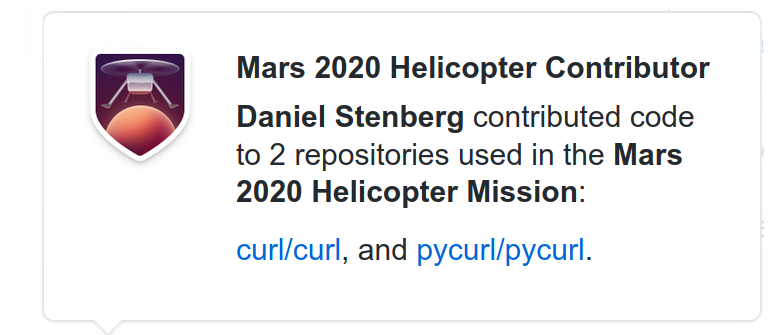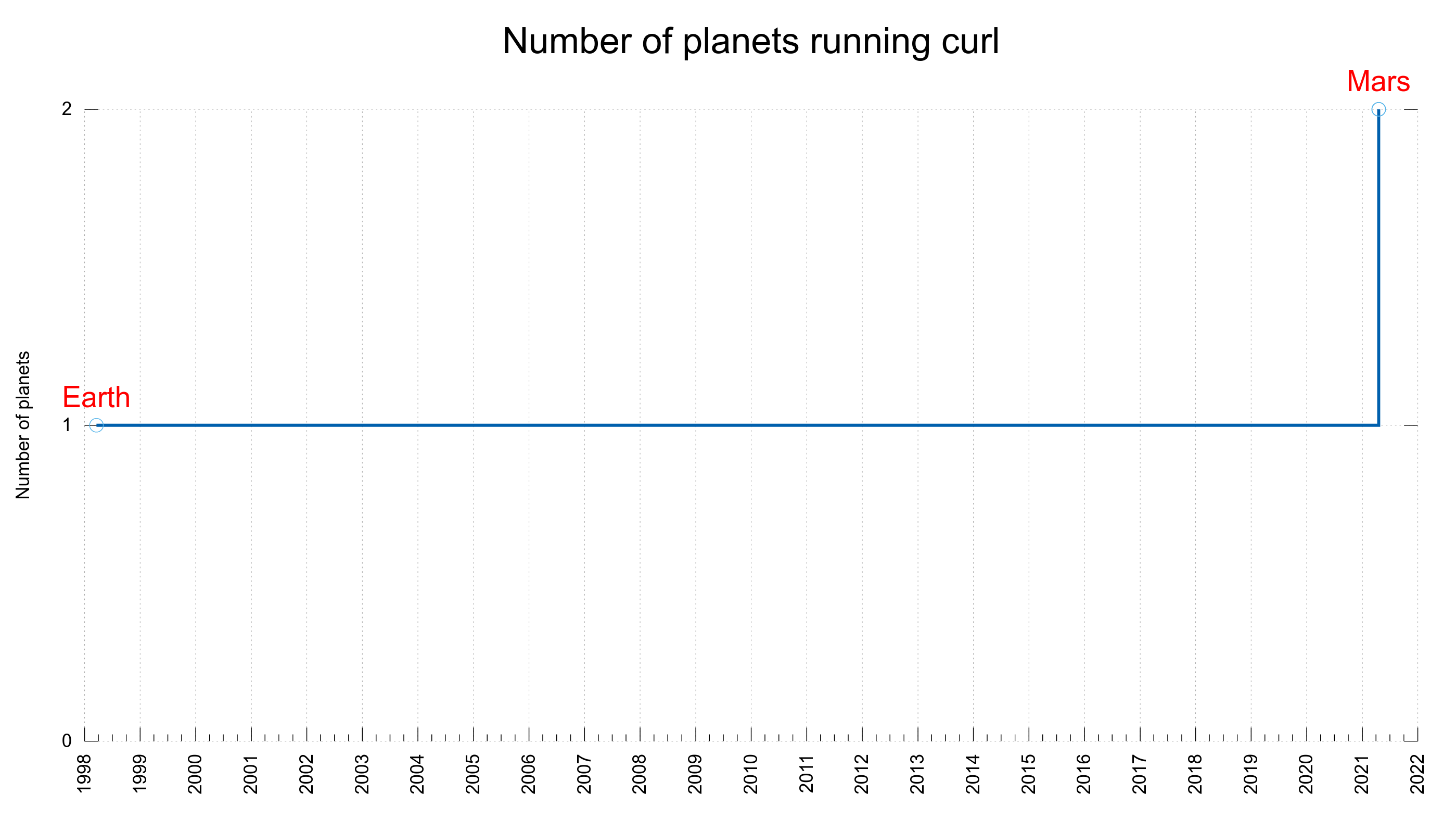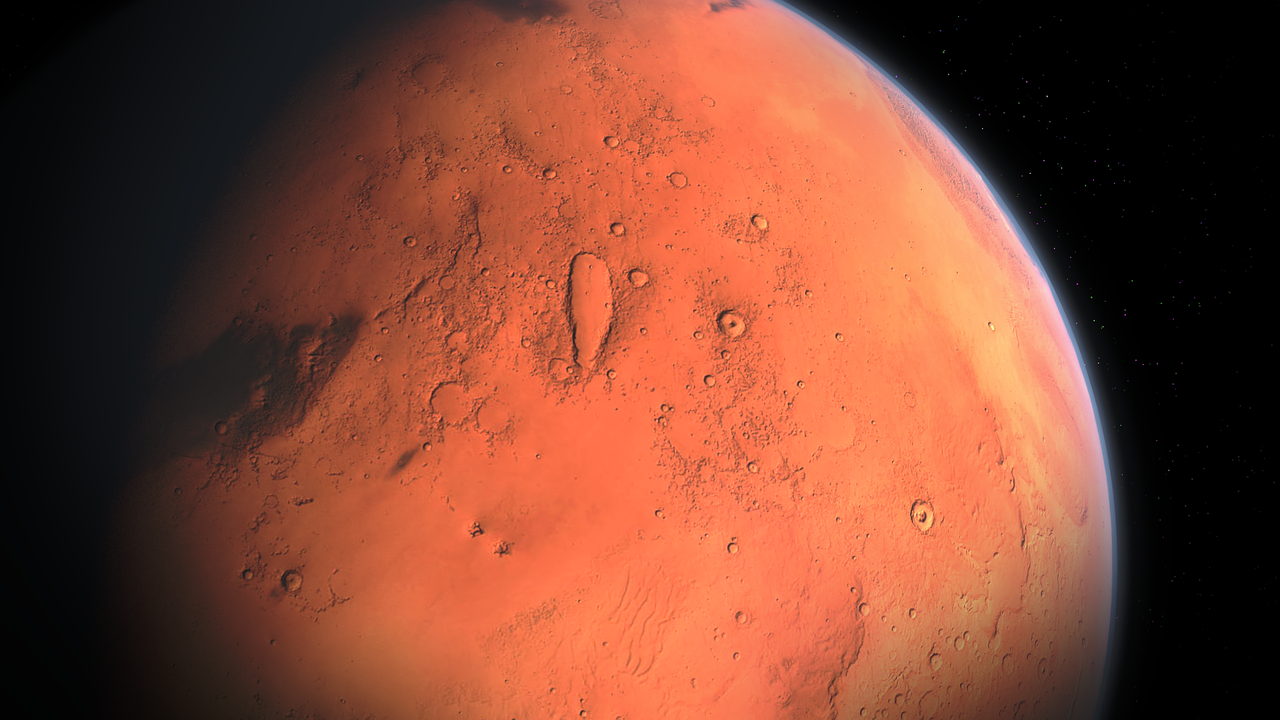Friends of mine know that I’ve tried for a long time to get confirmation that curl is used in space. We’ve believed it to be likely but I’ve wanted to get a clear confirmation that this is indeed the fact.
Today GitHub posted their article about open source in the Mars mission, and they now provide a badge on their site for contributors of projects that are used in that mission.
I have one of those badges now. Only a few other of the current 879 recorded curl authors got it. Which seems to be due to them using a very old curl release (curl 7.19, released in September 2008) and they couldn’t match all contributors with emails or the authors didn’t have their emails verified on GitHub etc.
According to that GitHub blog post, we are “almost 12,000” developers who got it.

While this strictly speaking doesn’t say that curl is actually used in space, I think it can probably be assumed to be.
Here’s the interplanetary curl development displayed in a single graph:

See also: screenshotted curl credits and curl supports NASA.
Credits
Image by Aynur Zakirov from Pixabay


Well, congratulations… it’s not something that most of us can claim. 🙂
according to https://docs.github.com/en/github/setting-up-and-managing-your-github-profile/personalizing-your-profile#list-of-qualifying-repositories-for-mars-2020-helicopter-contributor-badge they are using curl 7.19.0 from 2008-09-01, bit old version.
Johan: there are several indications the curl version number listed there is wrong. One is that the pycurl version listed is much newer, and users typically use them fairly synced. Another is that we have curl contributors who now boasts helicopter badges who didn’t start committed until 2009.
The Mars Helicopter design was pitched in 2014, Mid 2016 it was given a budget, Dec 2017 engineering models of it(physical articles) were flying in a vacuum test chamber set to Mars equivalent, May 2018 it was given a more substantial budget to up cadence of testing and integration and pace picked up, and finally it was mounted to the bottom of Percy in Aug 2019 for launch.
All this is to say, that somewhere between Dec 2017 to somewhere in 2018, the codebase was frozen. Perhaps earlier still. There were perhaps some packages updated if bugs were found, but unlikely much. The hard deadline would have been in early 2019.
Long story short, if you didn’t contribute code used on the flight(as described above before around 2018) your code isn’t in space. If you did, congrats, achievement unlocked! If someone did contribute code/patch etc included before 2018 and didn’t get the badge, that would be something worth looking into for sure! I certainly wouldn’t want to miss out on that badge!
I hope this clears up some of the confusion around which authors got the badge and which didn’t.
-Marcel
Thanks a lot for the details Marcel!
Example of a curiosity around the badges for curl: Dan Fandrich is committer #4 in the curl project and has committed code under his name and email since 2004. He has no badge. Compare with committer #11, Kamil Dudka, committer since 2009, has a badge.
There probably is a pattern to that, it’s just that I can’t see it!
Indeed, and unfortunately it’s not something the helicopter team has any scope over. This is all down to how Microsoft is handling this system. Definitely curious, I’m sorry to say I don’t have any more insight to give.
-Marcel
Marcel: thanks. I got in contact with one of the responsible peeps on GitHub in charge of this process and I’ve updated the blog post with some details I received.
FWIW, after going through the e-mail verification process, I now have the badge as well.
are you able to STILL get the achievement badge?
Allow me to rephrase, it is possible in current dates, to make a contribution and get the achievement ?? If not, then how come someone knows when any events or something of interest is happening?
Ray: no, the ones who got the badge are the ones who contributed to curl before some particular point in the past. I don’t know exactly what point.
> If not, then how come someone knows when any events or something of interest is happening
People, companies and organizations use curl every single day. We know that.